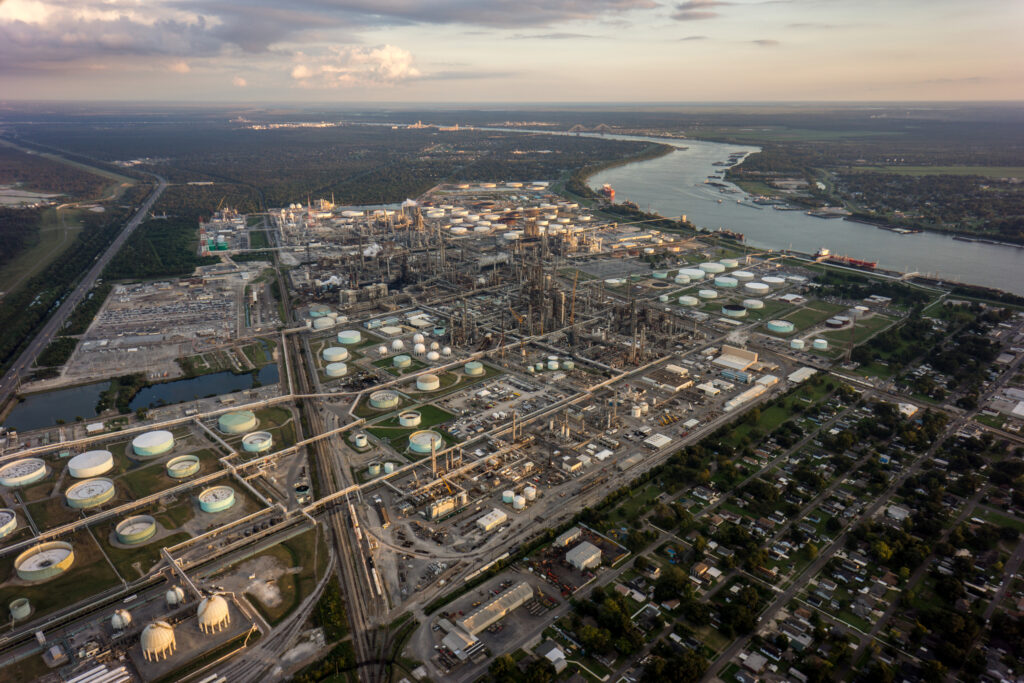Black residents of St. James Parish, Louisiana, have appealed to a federal court to overturn a decision that dismissed their claims of racial discrimination in local land-use policies. These policies have allegedly concentrated polluting industries in their neighborhoods.
Lawyers for Inclusive Louisiana, Rise St. James, and the Mount Triumph Baptist Church presented arguments before a three-judge panel in New Orleans. They assert that systemic racism has led to heavy industry and chemical plants being located in two predominantly Black parish districts, bypassing predominantly white areas.
The parish government defended the previous ruling by U.S. District Court Judge Carl J. Barbier, which dismissed the claims on grounds of delay in filing the lawsuit following a 2014 land-use plan, and stated the plaintiffs lacked legal standing.
The lower court also ruled that the environmental groups failed to sufficiently allege harm to their religious rights, as they could not demonstrate the parish government was responsible for restricted access to ancestral graves on industrial property.
The appeal is under consideration by Judges Patrick E. Higginbotham, Carl E. Stewart, and Catharina Haynes of the U.S. Fifth Circuit Court of Appeals, with varied political nominations ranging from Ford to Clinton and Bush administrations.
Initially, the lawsuit traced racial discrimination from the 1700s to modern-day land-use practices, claiming the 2014 plan reinforced discriminatory zoning against Black neighborhoods. The Center for Constitutional Rights and Tulane University Environmental Law Clinic represent the plaintiffs.
Inclusive Louisiana leaders hope the Fifth Circuit will advance their lawsuit, with intentions to escalate to the Supreme Court if necessary. Gail LeBoeuf, co-founder, expressed determination, stating, “The Civil War has never been over.”
Recently, a federal court ruling has restricted the EPA’s ability to address civil rights claims in Louisiana, complicating efforts to combat environmental racism in regions like “Cancer Alley.”
Cancer Alley spans 130 miles along the Mississippi River, home to over 200 industrial facilities, exposing residents to harmful pollution endangering health.
The lawsuit critiques a parish zoning category as a “racial cleansing plan,” resisted by the parish which sought to remove that terminology from the complaint.
Barbara Washington, co-founder of Inclusive Louisiana, highlighted the impact of industrial pollution on Black communities, leading to displacement and loss of essential services.
Ban on Solar Farms but Not Chemical Plants
During the hearing, Judge Haynes questioned the parish’s liability for private property issues, while plaintiffs argued direct links between land-use permits and industrial encroachment on cemeteries.
Attorney Carroll Devillier Jr. argued the statute of limitations had expired for challenging the 2014 plan, but Judge Haynes noted ongoing discriminatory impacts from subsequent actions, like a moratorium on solar farms.
The solar ban, allegedly requested by white residents, contrasts with the denial of a similar moratorium on new chemical plants, evidencing racial disparities in decision-making.
Pam Spees from the Center for Constitutional Rights noted amendments to the 2014 plan in 2018 did not alter the discriminatory framework. The plaintiffs seek to block future heavy industry in Black communities.
Lawsuit Brings “Much-Needed Attention” to Zoning Injustices
Legal expert Tony Arnold described the case as vital, addressing systemic discrimination in land use. He acknowledged the Fifth Circuit’s conservative stance might hinder progress despite credible arguments.
St. James Parish’s legal team addressed the term “racial cleansing” but failed to engage in the lower court’s discussions over potentially prejudicial language in the complaint.
Original Story at insideclimatenews.org
